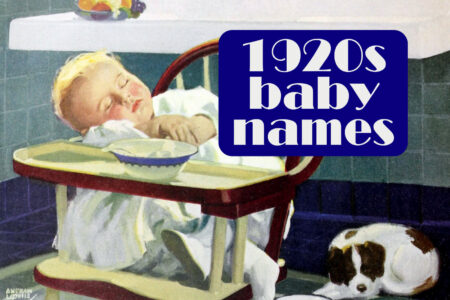- Means the prophetess or oracle
- Also may be spelled Sibyl
- “Sybil” was a famous book and television movie about a woman with multiple personalities
- Famous for a character on the TV series, Downton Abbey
History of the name Sibyl
Sibyl, the English favorite, which has become so popular in this country, was brought intact from Roman mythology.
The Sibyls were prophetesses, half-human, half-divine, but not immortal, whom etymologists say, gained their name through a Greek word meaning Zeus’ Council. At any rate, they were very wise and very old.
History recalls that it was the Cumaean Sibyl who guided Aeneas through the infernal regions, and it was she who brought the roll of prophecies to Tarquinius Wriscus, which Virgil afterward embodied in his eclogue, and through which he won his semi-Christian fame.
There are Sybils in the Sistine Chapel, the work of Michelangelo.
As Sibilla, the name came into Christian use. The lonely wife of Thor, whose hair was cut off by Lok, and its place supplied by golden tresses to represent the harvest, was called Sibilla, or Sib.
Sibilia of Conversana, was the name of the wife of Robert of Normandy, and Sebille was the form in which she gave it to France. There it belonged to the Angevin queen of Jerusalem, whose marriage gave so much trouble to the Crusade.
It was very popular among English ladies of noble blood. Spain adopted it, and straightway changed it to the soft Sevilla or Sebilla, made famous in the songs and poetry of that period.
Sibella was the favorite Scotch and English form, though Sibyl and Sibbie were also popular there. Russia has a curious form, Sevilla.
The aquamarine is Sibyl’s talismanic stone. It assures its wearer mysterious charm and the power of winning friends and gaining heart’s desires through wisdom and magnetism. Monday his her lucky day, and 2 her lucky number.







